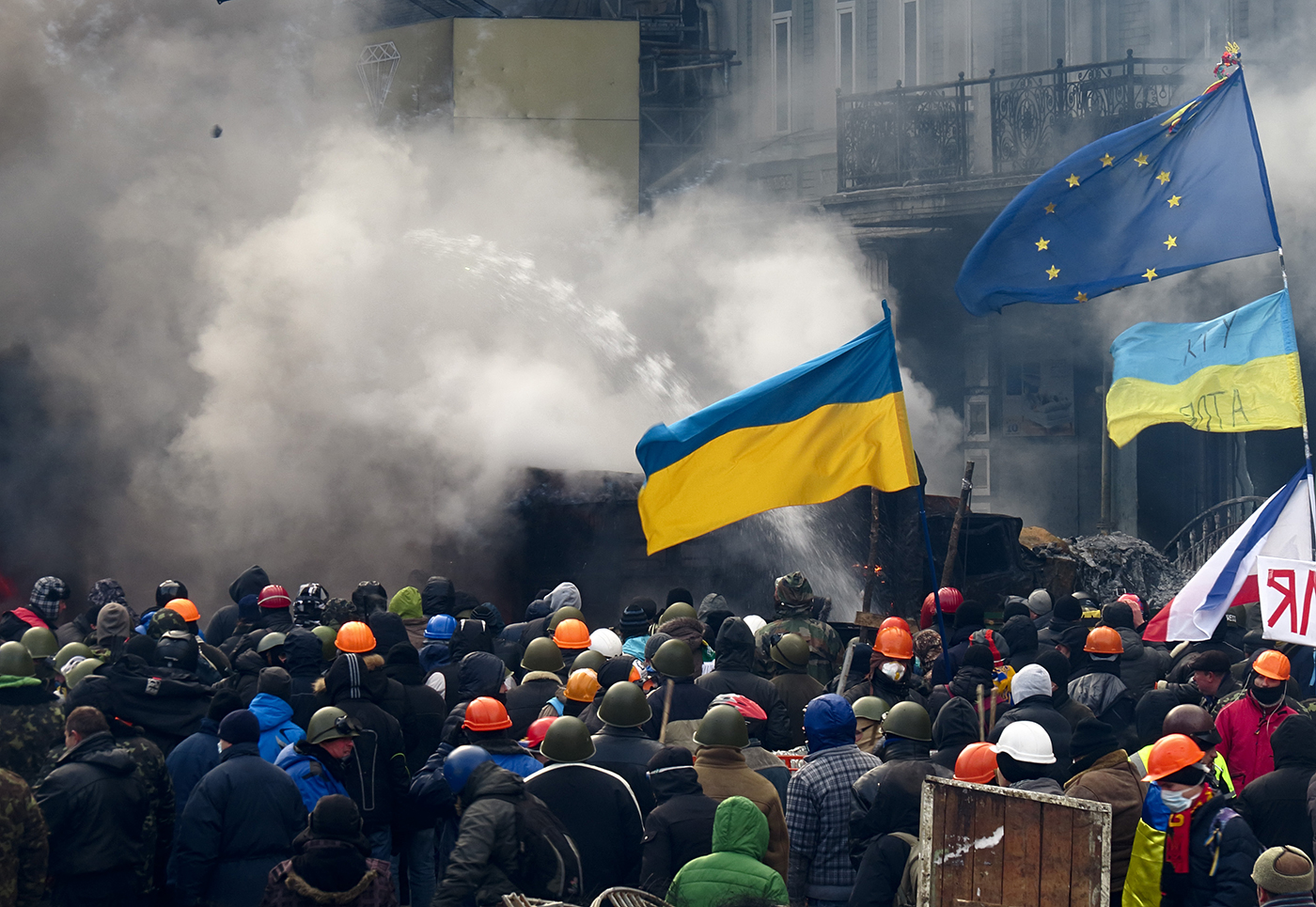Ukrainian “Orange Revolution 2.0” – Is Arab Spring Going Back To Eastern Europe, Where It Started 10 years ago?
Estimated reading time: 2 Minutes


It is 18 February, 2014 and “Khreschatyk”, central street of the Ukrainian capital Kiev, is witnessing hundreds of thousands of angry demonstrators - the biggest public uprising since 2004 “Orange Revolution”. People came out in the streets to protest against government’s decision which rejected Association Agreement (AA) with the EU earlier in November 2013. If signed the AA would bring Ukrainians visa free travel as well as free trade in EU. Instead, President Yanukovich of Ukraine made a decision to strengthen their ties with President Putin of Russia and take Ukraine in to the Customs Union, an economic entity of post-Soviet countries – Russia, Belarus and Kazakhstan. It is widely believed that further expansion of the Customs Union championed by Russia is a clear demonstration of President Putin’s last attempt to restore Soviet Union, collapse of which he once characterised as "the greatest geopolitical catastrophe" of the 20th century. Shortly after rejecting a deal with the EU, Ukraine received 15 billion USD from Russian state budget and a discounted price for Russian gas as a sign of appreciation from President Putin.
What Ukrainians demand?
In the outset of the demonstrations back in December 2013 the main demand of the protests was to overturn Yanukovich’s decision and sign the association agreement with the EU. But now, almost 4 months after the persistent protests, people only demand unconditional resignation of President Yanukovich and dissolution of the acting Parliament – Rada. The leaders of the opposition – Vitali Klitschko, a former World Champion in boxing as well as Arseniy Yatsenyuk, a close ally to Yulia Tymoshenko (a former Ukrainian PM and political prisoner serving her jail time at the moment) – both are courageous leaders, who personally risk their lives while taking part in the everyday clashes with the riot police called “Berkut”. Only on this day alone there are 10 registered deaths and more than 400 injured amongst protestors and police forces.
Early this month President Yanukovich made attempts to offer several important governmental positions (including the post of the Vice-Prime Minister) to the leaders of the oppositions. However, these offers were instantaneously rejected.
What is the role of EU?
Since President Yanukovich rejected Association Agreement, EU plays only a very minor role in the peaceful resolution of the conflict with merely symbolic political statements made by Catherine Ashton and other EU officials calling parties to seat around the negotiation table.
How these protests are different from 2004 Orange Revolution?
Less than a decade ago under the leadership of Viktor Yushchenko and Yulia Tymoshenko Ukrainian people managed to peacefully end an era of autocratic president Leonid Kuchma. However, these two political leaders could not manage to set in stone Ukrainian people’s European inspirations. As a result, in 2010 pro-Russian politician Viktor Yanukovich took over the presidency and start to lead the country with anti-European rhetoric. The difference between now and 2004 is a violent nature of government’s response to the demands of its own people. Another factor that distinguishes these two events is role of outside player - Russia, which is much stronger now than it was 10 years ago and which is doing everything possible not to let Ukraine move from its political orbit towards the Europe.
What happens next?
Will President Yanukovich face the same fate as many bloody dictators from Middle East, Balkan countries, Africa or will he manage to face reality, say no to the restoration of Soviet Union and sign Association Agreement with the EU? This is the policy decision that President Yanukovich has to make within the next 48 hours before the rule of law will be replaced with the rule of angry people. Another aspect that we have to bear in mind in this situation - if President Putin will succeed in ultimate separation of Ukraine from Europe, it will be a strong signal to the whole world, and especially towards the small post-Soviet countries that are now getting on their feet, that unfortunately All Roads Lead to Kremlin and not anywhere else.
Image source: Аимаина хикари
